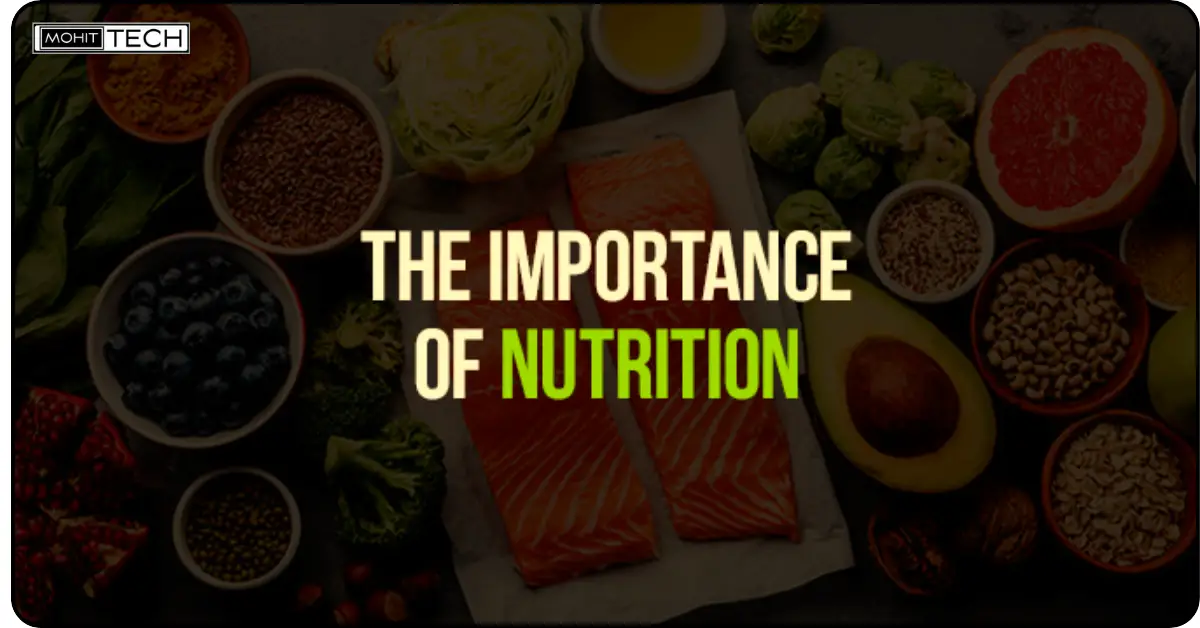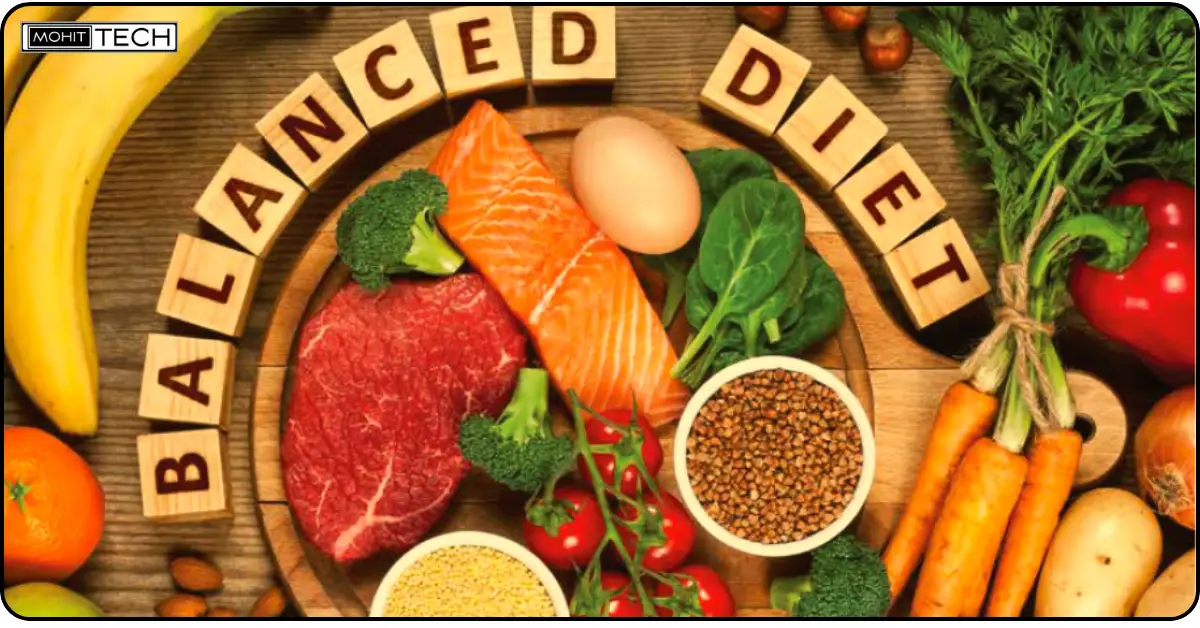Introduction
Achieving fitness goals involves more than just regular exercise; it requires a well-rounded approach that includes a balanced diet. Proper nutrition is fundamental in supporting physical activity, enhancing performance, and ensuring effective recovery. For beginners embarking on a fitness journey, understanding how to align dietary choices with fitness goals can make a significant difference. This article explores how a balanced diet supports fitness objectives, highlights essential nutrients, and provides practical meal planning tips to help beginners optimize their nutrition.
The Role of a Balanced Diet in Fitness
1. Fueling Workouts and Performance
Importance of Energy
A balanced diet provides the necessary energy to fuel workouts and sustain physical activity. Carbohydrates, proteins, and fats are the primary macronutrients that supply energy, each playing a specific role in supporting fitness performance.
- Carbohydrates: Serve as the main source of energy for high-intensity and endurance exercises. They are stored in muscles and liver as glycogen, which is readily available during physical activity.
- Proteins: Essential for muscle repair and growth. Consuming adequate protein helps in recovering from workouts and building lean muscle mass.
- Fats: Provide sustained energy for low to moderate-intensity exercises. Healthy fats, such as those from avocados, nuts, and olive oil, support overall health and hormone production.
Balancing Macronutrients
To optimize performance, it’s crucial to balance macronutrients according to your fitness goals. For example, endurance athletes may require a higher carbohydrate intake, while strength trainers might focus more on protein consumption.
2. Enhancing Recovery and Muscle Repair
Role of Recovery Nutrition
Proper nutrition post-workout is vital for recovery and muscle repair. Consuming the right nutrients helps reduce muscle soreness, replenish glycogen stores, and repair muscle tissues.
- Post-Workout Carbohydrates: Replenish glycogen levels. Include sources like whole grains, fruits, and sweet potatoes.
- Post-Workout Proteins: Aid in muscle repair and growth. Opt for lean proteins such as chicken, fish, or plant-based proteins like beans and lentils.
- Hydration: Essential for recovery. Drink plenty of water and consider electrolyte-rich beverages if engaging in intense workouts.
Timing Your Meals
Eating a balanced meal or snack within 30-60 minutes after exercising can maximize recovery benefits. Combining protein and carbohydrates in your post-workout meal promotes effective recovery and muscle repair.
Essential Nutrients for Fitness Goals

1. Carbohydrates
Types of Carbohydrates
Carbohydrates are categorized into simple and complex forms. Complex carbohydrates, such as whole grains, vegetables, and legumes, provide sustained energy and are rich in fiber, which aids digestion.
Best Sources
- Whole Grains: Brown rice, quinoa, oats.
- Vegetables: Spinach, broccoli, sweet potatoes.
- Fruits: Apples, berries, bananas.
2. Proteins
Protein Quality
Proteins are composed of amino acids, which are crucial for muscle repair and growth. Both animal and plant-based proteins can provide essential amino acids.
High-Quality Sources
- Animal-Based: Chicken, turkey, fish, eggs.
- Plant-Based: Beans, lentils, tofu, tempeh.
3. Fats
Healthy Fats
Incorporate healthy fats into your diet to support overall health and hormonal balance. Healthy fats are essential for brain function and the absorption of fat-soluble vitamins.
Sources of Healthy Fats
- Avocados: Rich in monounsaturated fats.
- Nuts and Seeds: Almonds, chia seeds, flaxseeds.
- Olive Oil: A good source of monounsaturated fats.
4. Vitamins and Minerals
Role in Fitness
Vitamins and minerals play a critical role in energy production, immune function, and muscle contraction. Ensuring an adequate intake supports overall health and fitness.
Key Vitamins and Minerals
- Vitamin D: Supports bone health and immune function. Found in fortified foods and sunlight.
- Calcium: Important for bone strength. Sources include dairy products and leafy greens.
- Iron: Essential for oxygen transport in the blood. Found in lean meats, beans, and fortified cereals.
Meal Planning Tips for Beginners
1. Create a Balanced Plate
The Ideal Plate
A balanced plate should include a variety of nutrients to support overall health and fitness goals. Aim for a combination of macronutrients and micronutrients in each meal.
- Half the Plate: Fill with vegetables and fruits for vitamins, minerals, and fiber.
- Quarter of the Plate: Include lean proteins for muscle repair and growth.
- Quarter of the Plate: Add whole grains or starchy vegetables for energy.
2. Plan and Prep Meals Ahead
Benefits of Meal Prep
Meal prepping saves time, ensures you have healthy options available, and helps control portion sizes. It reduces the likelihood of making unhealthy choices due to time constraints or convenience.
How to Meal Prep
- Plan Your Menu: Create a weekly meal plan that includes breakfast, lunch, dinner, and snacks.
- Batch Cooking: Prepare large quantities of staples like grilled chicken, quinoa, or roasted vegetables. Store them in portioned containers for easy access.
- Healthy Snacks: Prepare snacks in advance, such as cut vegetables, fruit slices, or nut butter packets.
3. Stay Hydrated
Importance of Hydration
Proper hydration is crucial for overall health and fitness. Water supports digestion, regulates body temperature, and aids in nutrient transport.
Hydration Tips
- Drink Water Regularly: Aim for at least 8 cups of water per day, more if engaging in intense exercise or in hot climates.
- Monitor Hydration: Pay attention to thirst cues and urine color. Light yellow urine generally indicates adequate hydration.
4. Monitor Portion Sizes
Understanding Portions
Portion control helps manage calorie intake and prevents overeating. Understanding proper portion sizes ensures you get the right balance of nutrients without excessive calorie consumption.
Tips for Portion Control
- Use Measuring Tools: Employ measuring cups and a food scale to gauge portion sizes accurately.
- Practice Mindful Eating: Eat slowly, savor each bite, and listen to your body’s hunger and fullness signals.
5. Adapt to Your Fitness Goals
Tailoring Your Diet
Adjust your diet based on your specific fitness goals, whether it’s weight loss, muscle gain, or overall health improvement.
- For Weight Loss: Focus on nutrient-dense, lower-calorie foods and balance your calorie intake with physical activity.
- For Muscle Gain: Increase protein intake and ensure sufficient calories to support muscle growth and repair.
Conclusion
A balanced diet is integral to achieving fitness goals, providing the necessary energy, supporting muscle repair, and enhancing overall health. By incorporating essential nutrients such as carbohydrates, proteins, and healthy fats, and utilizing practical meal planning tips, beginners can effectively support their fitness journey. Proper hydration, portion control, and adapting your diet to align with your fitness goals further enhance the benefits. Embracing a holistic approach to nutrition will not only optimize your workouts but also contribute to long-term health and wellness.

